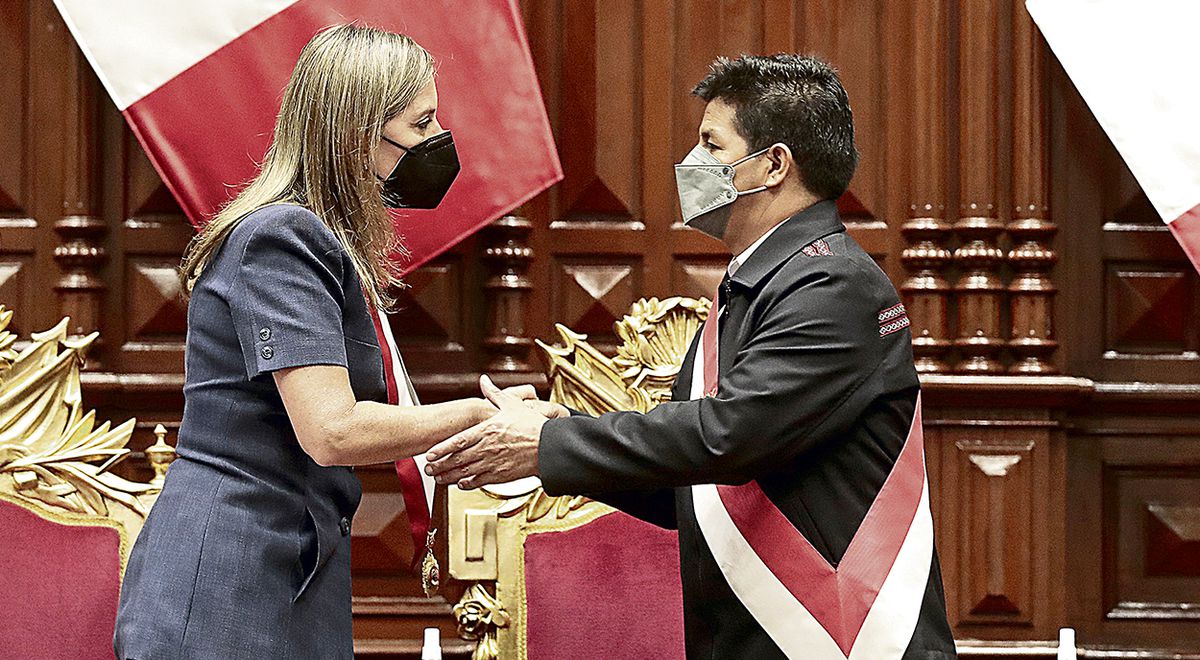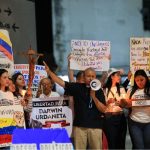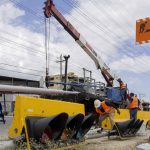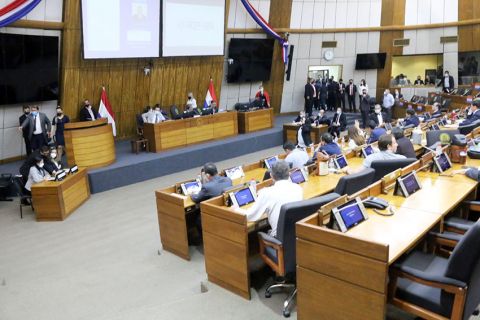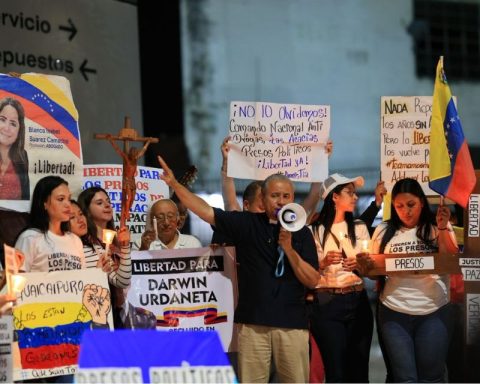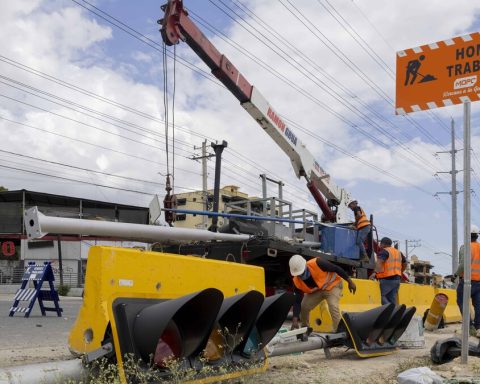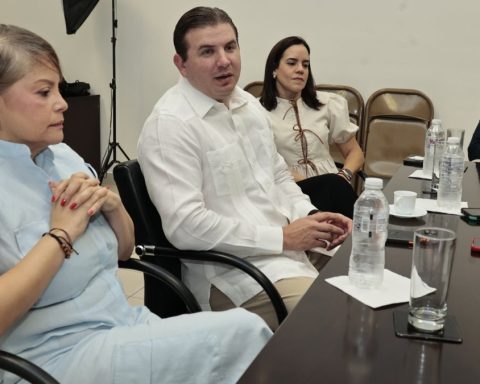Between 3:00 pm and 4:30 pm yesterday there was a shift in the president’s intentions peter castle. He had called an extraordinary session of the Council of Ministers to finalize details of what his speech to Congress was going to be. Then It had transpired that the Government was evaluating raising the advancement of general elections in the event that Parliament dismisses the president.
But in the end, that initiative was not announced.
At 5:00 pm, President Castillo began his message by prioritizing ten axes of his government: generation of well-being and social protection with food security, economic reactivation and productive activities, promotion of science and technology, strengthening of the educational system, decentralization, strengthening of the democratic system, efficient management of risks and threats, governance and digital transformation, leadership of a national and democratic diplomacy and intercultural State.
These points had already been mentioned by Prime Minister Aníbal Torres when he requested the vote of confidence for his cabinet last week.
YOU CAN SEE: Aníbal Torres confirmed that Pedro Castillo was going to propose early general elections
The presidential release
After that summary of his administration, the president dedicated himself to responding to the questions that weigh against him and to enumerate a series of facts to rebuke the attitude of the congressional opposition in his mandate. “As president, I recognize that there are situations that deserve to be corrected and today I can say that we are doing it. I am clear that any government management is always perfectible, “he said.
Although he acknowledged management errors, he denied being involved in illegal acts. For this reason, he questioned the widespread version of the businesswoman Karelim López, which involves him in alleged acts of corruption.
“His defense (César Nakazaki) says the opposite. This is just one example of the lies that are built against this government and that, with the passage of time, fall away,” she said regarding López’s statements in her attempt to be an effective collaborator. In that sense, she called on the Public Ministry to speed up the investigations.
YOU CAN SEE: Pedro Castillo on the Odebrecht case: “How many are sentenced after almost 7 years?”
In addition, The president ruled on the constitutional complaint that weighs against him for alleged treason against the country because he allegedly offered an outlet to the sea to Bolivia. “We must remember that Peru granted Bolivia access to the sea when the Alberto Fujimori regime signed said agreement in 1992, which was extended by former President Alan García in his second government,” he recalled.
When Castillo lamented the role of the opposition benches, he recalled the episodes in which some parties — Fuerza Popular, Renovación Popular and Avanza País — sought to delegitimize their electoral victory.
“Since my proclamation as president, a political sector has not accepted the electoral victory that the Peruvian people gave us,” he said.
YOU CAN SEE: Castillo: “We will send to Congress reforms that allow us to overcome this structural crisis”
Castillo recapitulated that in Congress the opposition created an investigative commission against last year’s electoral results, shelved a bill to reform the presidential vacancy and prevent the dissolution of Parliament, promoted a motion to dismiss him, proposed increasing the grounds for suspending him from position, by insistence he promulgated the law that attempts against the referendum for constitutional reforms and promoted a second vacancy motion, which will be debated on Monday, March 28.
“This shows that there has been and is an intense and systematic work to question the legitimacy of the presidency and obstruct the work of the Executive, with the sole purpose of vacating the president or finding mechanisms to shorten his mandate,” he denounced. After that, he tried to calm the waters in the hemicycle.
Agglomeration. Castillo and his cabinet arrived at the Congress walking down Av. Abancay. Photo: John Reyes/The Republic
YOU CAN SEE: Demonstrations take place outside the Congress prior to the presidential message
by consensus
For this, he announced that he will soon present a package of reforms “that will allow us to overcome this structural crisis.” The president said that these “will be done with the participation of the powers of the State, the autonomous constitutional bodies and the citizenry.” “In this sense, I announce the convening of the National Agreement, representative and plural instance that will allow us to achieve the necessary consensus”, he invoked.
It is not the first time that the president calls for the National Agreement. When Mirtha Vásquez was his prime minister, he did too. and there was born the bill to reform the vacancy and the matter of trust with the aim of guaranteeing the stability of powers. Vásquez presented the initiative before Congress, but it is, until now, shelved in the Constitution Commission, chaired by the Fujimorist Patricia Juárez.
YOU CAN SEE: Minister of Culture affirms that the country “will remain calm” after Pedro Castillo’s message
Last minute change
It is uncertain whether Castillo’s presentation will serve to make Fujimorism and its allies lose support in their vacancy attempt. What is concrete is that, according to what the head of the cabinet, Aníbal Torres, affirmed at night, the president backed down on the idea of proposing an early election. “An announcement was missing that at the last minute the president decided not to make, because he told me: ‘Doctor, we are going to make one last attempt to reach consensus in Congress, to correct this political instability that exists, we need to come to an agreement,’” he said.
In addition, according to La República sources, the Minister of Justice, Ángel Yldefonso, yesterday after 2:30 pm, asked the Deputy Minister of Justice, Juan Carrasco, to evaluate and issue a bill on this proposal.
It is not clear if the text of the project was ready, but it was confirmed that the initiative was addressed in the Palace.
YOU CAN SEE: Paredes affirms that vacancy is an inadequate mechanism, but political control must continue
Congress against the government
In a passage of his message, Castillo listed the actions taken by the Legislature against the Executive. This upset the opponents of him.
reactions
Jorge Montoya, spokesman for Popular Renewal
“The accountability process that he has to do to us on the 28th is still pending. There are 20 questions that have not yet been answered. We are going to continue with the inspection that we are carrying out.”
Carlos Anderson, congressman of Podemos Peru
“The only surprise is that there were no surprises. Messy, incongruous, full of figures and unrelated quotes, and supposed achievements and mentions of corruption without context. But mea culpa, yes, no.”
YOU CAN SEE: Anderson: “I hope that Castillo’s visit is not an excuse for him not to show up on the 28th”
Jaime Quito, congressman of Free Peru
“The announced measures are important, but not enough to defeat the vacant right. We must return to the program of change, and prioritize the great pact with the popular sectors”.
Flor Pablo, congresswoman of the Purple Party
“Self-criticism is insufficient if you persist in weakening institutions, taking over the state apparatus and rejecting meritocracy. This undermines the credibility of his purpose of amendment.”
YOU CAN SEE: Congress: opposition seeks to reach 87 votes for the vacancy of Pedro Castillo
A mid-impact play
Focus by: Alonso Cárdenas, political analyst
The first element to highlight is that the president recovers a little initiative. It has been a positive move to go to Congress. He presented some important achievements, for example, vaccination, but with the detail that the responsible minister was changed and a highly questioned one like Hernán Condori was put in place. I rescue that he commented that there is a group in Congress that never wanted to recognize the electoral results.
The president did well to bring it to the fore. The negative is that he is very short in the mea culpa. The case of Karelim López mentions it tangentially, but does not mention Bruno Pacheco, whom he himself appointed as secretary of the presidency and now is a headache. Nor does it refer to the terrible designations that have been. They have dusted off the general government policy to deal with an extremely complicated political situation. That doesn’t help it because it isn’t given the relevance it should be. March 28 is two weeks away, which in political times is an eternity, so he arrives weakened, but not that much. He could do more, however, taking into account the background, it is the political move that the president has made in eight months of not having any type of reaction. It is somewhat positive.
The proposal to advance the elections would have been an interesting move, a chess move. It would have shown that Congress does not want to leave. More or less the same situation of Martín Vizcarra would have been repeated. There he would have won a political moment. But doing the additions and subtractions, and despite not having the audacity to make a bold move like Vizcarra, going to Parliament gives the president oxygen, something that is now very necessary.
